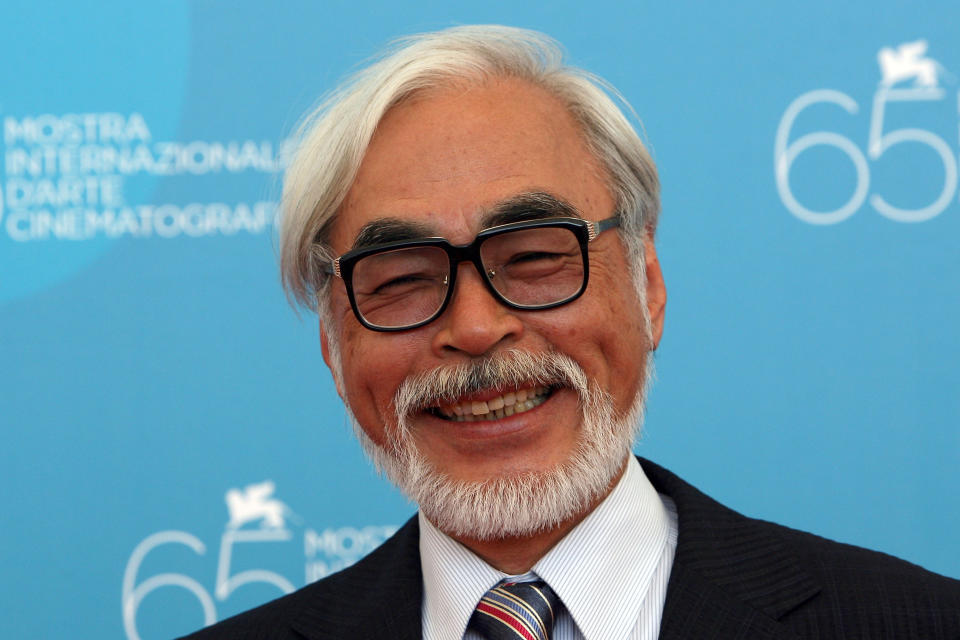Why No One Knows What the Strike Means for TIFF, Telluride, and Other Fall Film Festivals

Existential crisis created the SAG-AFTRA and WGA strikes, which in turn created another: What is a major fall festival premiere worth without its stars?
When the Venice and Toronto festivals announce their slates next week, it will reveal which studios decided the event holds its value even without the red carpets and press suites. On Wednesday, leadership at the Toronto International Film Festival sent an email to members of the industry, assuring them that they were moving full steam ahead.
More from IndieWire
“TIFF recognizes that the impact of the SAG-AFTRA strike on the entertainment industry and film festivals like ours cannot be denied,” the letter states. “We are continuing to plan for a memorable and high profile festival from September 7 to 17. The entire TIFF Team, and our stakeholders, are continuing to prepare for a memorable festival showcasing the best of global cinema and are set to once again welcome thousands of film lovers, media, and industry professionals to Toronto.”
The letter goes on to state that registered delegates for the festival are up 10 percent over 2022. Additionally, 70 percent of the lineup comes from 70 countries around the world, which suggests that a majority of the program will be comprised of work unaffiliated with the AMPTP. If those projects contain SAG members, they still need union waivers to promote them — but that can’t address whether an actor wants to risk the optics.
TIFF initially planned to announce its Gala titles July 19, but pushed to July 24 as distributors scrambled to sort out their plans. Sources suggest the festival may land Hayao Miyazaki’s long-awaited animated feature “The Boy and the Heron” for opening night. The first movie from the 82-year-old animation legend in a decade already opened in Japan as “How Do You Live?” with no advance press; whether or not Miyazaki makes the trek to Canada for a North American premiere, the movie will be a draw. (It’s distributed by GKids in North America. TIFF declined to comment on whether the movie was a lock.)
Other movies with name actors as their draw don’t have it so easy, and TIFF is not alone in this conundrum. This week, Amazon was wavering on whether or not to keep “Challengers” as its opening night selection, and ultimately decided to pull it (the festival now open with competition entry “Comandante,” from Italian director Edoardo De Angelis). While director Luca Guadagnino lobbied hard for the tennis drama to hold tight, as the Italian auteur wanted to launch his fall season hopeful in a prominent slot, the absence of star Zendaya lessened the potential for red carpet sizzle that studios crave from festivals. Amazon will now release it in April.
“After thoughtful consideration with our partners, and given the parameters that SAG-AFTRA has outlined for its membership, we have made the difficult decision to withdraw ‘Challengers’ from this year’s Venice International Film Festival,” Amazon said in a statement. “We look forward to celebrating the film when we can do so with our ensemble cast, director Luca Guadagnino, and the filmmaking team at a later date.”

That’s a radical move and may inspire other studios to follow suit. However, Venice’s European identity could divert attention to non-U.S. films, and Telluride’s cinephile summer-camp doesn’t have red carpets, anyway. Conversely, TIFF’s celebrity appearances helps sell tickets and attract sponsorships. The festival held calls with distributors this week in the hopes of convincing studios to keep their movies in the lineup, but the situation remains fluid for several the bigger titles, especially those with AMPTP ties.
This includes “Next Goal Wins,” the soccer comedy from writer-director Taika Waititi that TIFF announced as a world premiere title earlier this summer. As a SAG member who has a small role in the Disney-owned Searchlight movie, Waititi’s ability to promote the movie might seem suspect. While SAG has been telling members that if they have an “insubstantial” role in movies they direct, they can promote the work as long as they steer clear of discussing the role, that could be a tough act for a prominent performer to follow. However, the company is waiting for official confirmation that Waititi won’t attend TIFF in a directorial capacity before making any final decisions.
It can cost a studio upward of $100,000 to cover the costs of a festival launch and any distributor must weigh a lower-wattage festival premiere against the costs. For “Maestro,” which has Bradley Cooper directing himself as Leonard Bernstein, Netflix could choose a lower-profile premiere at New York Film Festival. (As a New York resident, Cooper may have an easier time working the room even if he doesn’t, say, participate in a Q&A.)
TIFF produced major deals like “Still Alice” in 2014 (Sony Pictures Classics), “Jackie” in 2016 (Searchlight), “I, Tonya” in 2017 (Neon), and “Sound of Metal” in 2019 (Amazon), but all festivals’ sales markets have slowed. If talent support is considered essential for sales titles, producers could hold for Sundance or Berlin.
Buyers are already circling potential TIFF pickups like Ethan Hawke’s “Wildcat,” which stars his daughter Maya Hawke as Flannery O’Connor. Hawke plans to promote the movie, also expected at Telluride, under the assumption that the SAG and WGA strikes would not prohibit him from doing so as a director; his daughter, however, applied for a waiver.
Viggo Mortensen faces a more complicated hurdle with his sophomore directing effort, “The Dead Don’t Hurt,” an 1860s drama that finds him playing a Danish immigrant opposite Vicky Krieps as a French-Canadian woman. Similarly, Michael Keaton directs himself opposite James Marsden as a contract killer with dementia in “Knox Goes Away,” as does Anna Kendrick in her directorial debut “The Dating Game.”
Other sales titles expected at TIFF include Mexican director Michel Franco’s “Memory,” starring Jessica Chastain, Richard Linklater’s “Hitman,” a dark comedy he co-wrote with star Glen Powell, and “His Three Daughters,” the latest dramedy from Azazel Jacobs (“The Lovers”) starring Carrie Coon, Elisabeth Olsen, and Natasha Lyonne.

Many of the specifics of SAG’s waiver-approval system largely remain a mystery. However, IndieWire has learned from sources this week that SAG will not stand in the way of acquistion titles at festivals securing deals with AMPTP members. That means that while actors can’t promote studio movies at the fall festivals, studios can still buy movies that are for sale, and actors with SAG waivers can promote them.
Last year’s TIFF was a tepid year for major sales, with the market favoring discoveries like Daniel Goldfarb’s “How to Blow Up a Pipeline.” However, TIFF 2022 is also where Alexander Payne scored a $30 million deal with Focus Features for “The Holdovers,” which stars Paul Giamatti and is expected to make the festival rounds this year.
“There’s a lot of grey areas around what conversations you can and can’t have,” one distributor told IndieWire this week. “It seems like there’s a lot of latitude about what can be made. What does that tell us? These guilds really want people to work.”
TIFF’s stringent focus on world premieres also creates more complications, since it means the festival intends to be the films’ ground zero for buzz — a tall order without talent. Smaller festivals, which are far more lenient, also grapple with questions. The non-profit Film Festival Alliance held a call this week with regional festivals to discuss the limits of talent attendance, but the only clarity was plans for another call in two weeks. The organization’s membership includes over 230 festivals from 40 states as well as Canada and the UK.
“Generally, festivals want to be in support and not run afoul or break any rules, and yet our audiences expect talent as part of the festival experience,” said Film Festival Alliance head Barbara Twist. “So, we need to generate solutions to that quickly, which will involve engaging directly with the unions to ensure we are supporting/amplifying and not detracting from their needs.”
By the time anyone understands the full ramifications of the strike, it will be over. But when? Many festival regulars have been contemplating what the large-scale ramifications of a disrupted fall season could mean for the business. “If this goes until January,” one veteran producer told IndieWire this week, “we won’t have an industry.”
Additional reporting by Anne Thompson.
This article has been updated.
Best of IndieWire
Quentin Tarantino's Unmade Movies: 21 Projects the Filmmaker Almost Directed
Christopher Nolan Movies, Ranked from 'The Dark Knight' and 'Tenet' to 'Dunkirk' and 'Oppenheimer'
Where to Watch This Week's New Movies, from 'Barbie' to 'Oppenheimer'
Sign up for Indiewire's Newsletter. For the latest news, follow us on Facebook, Twitter, and Instagram.

